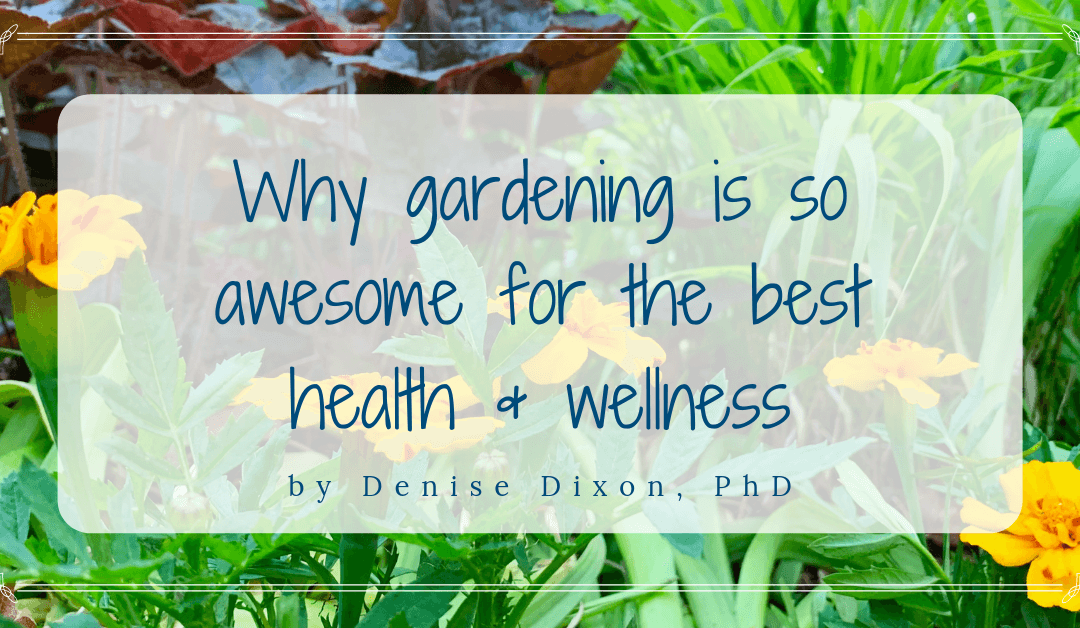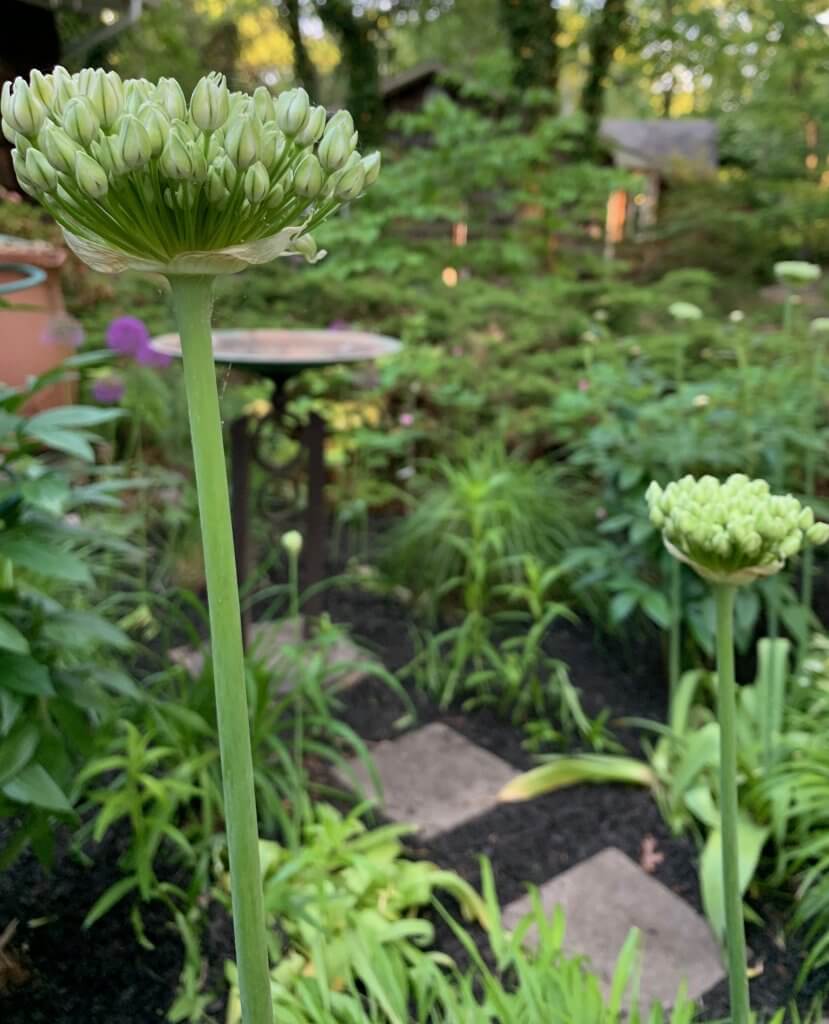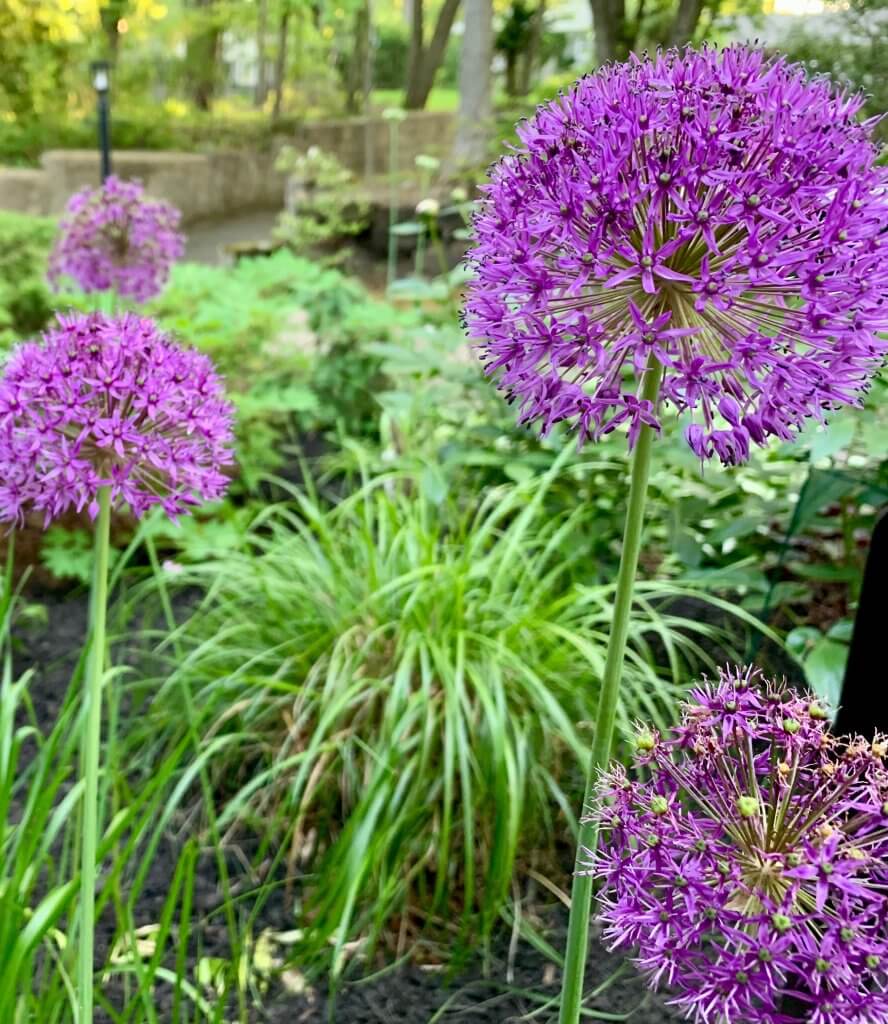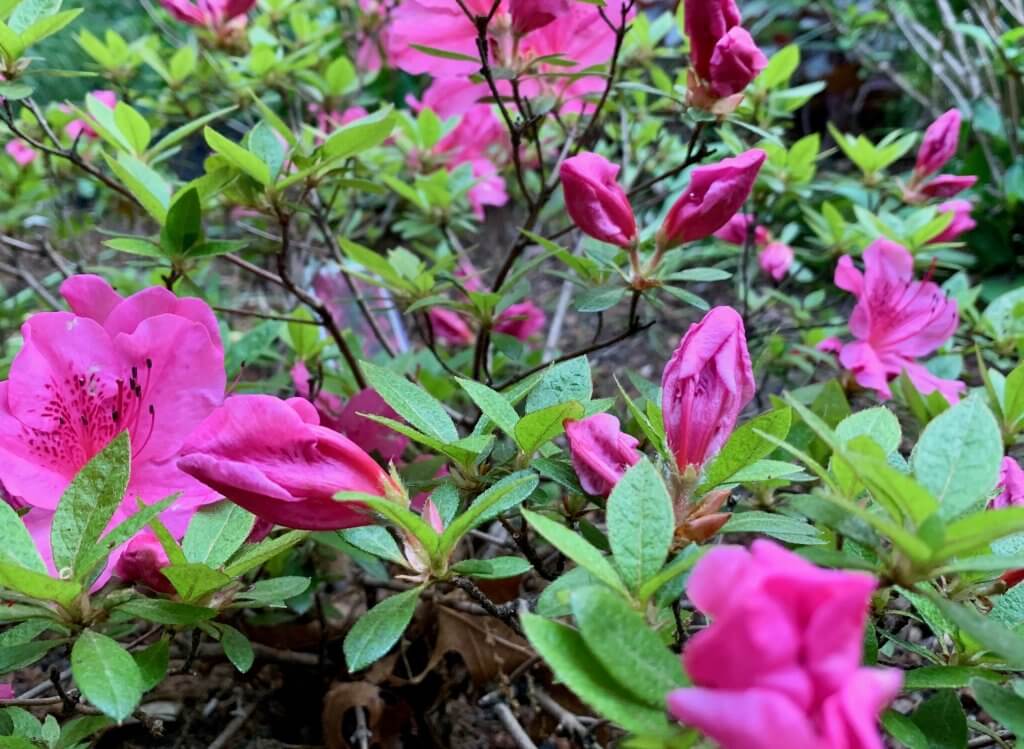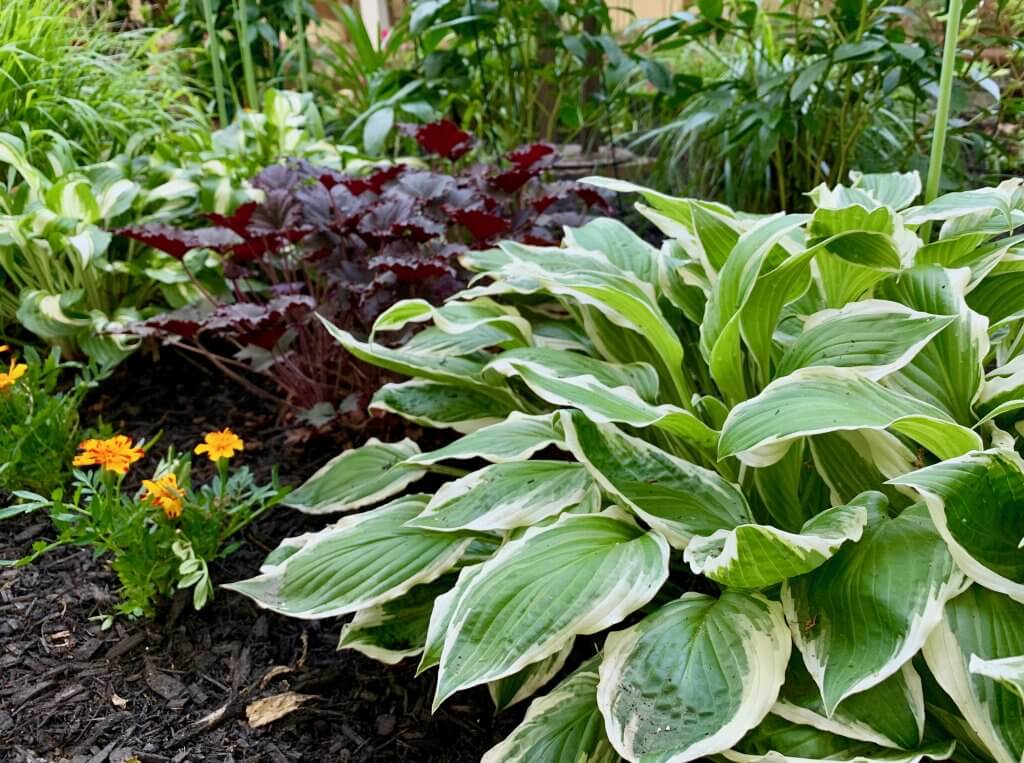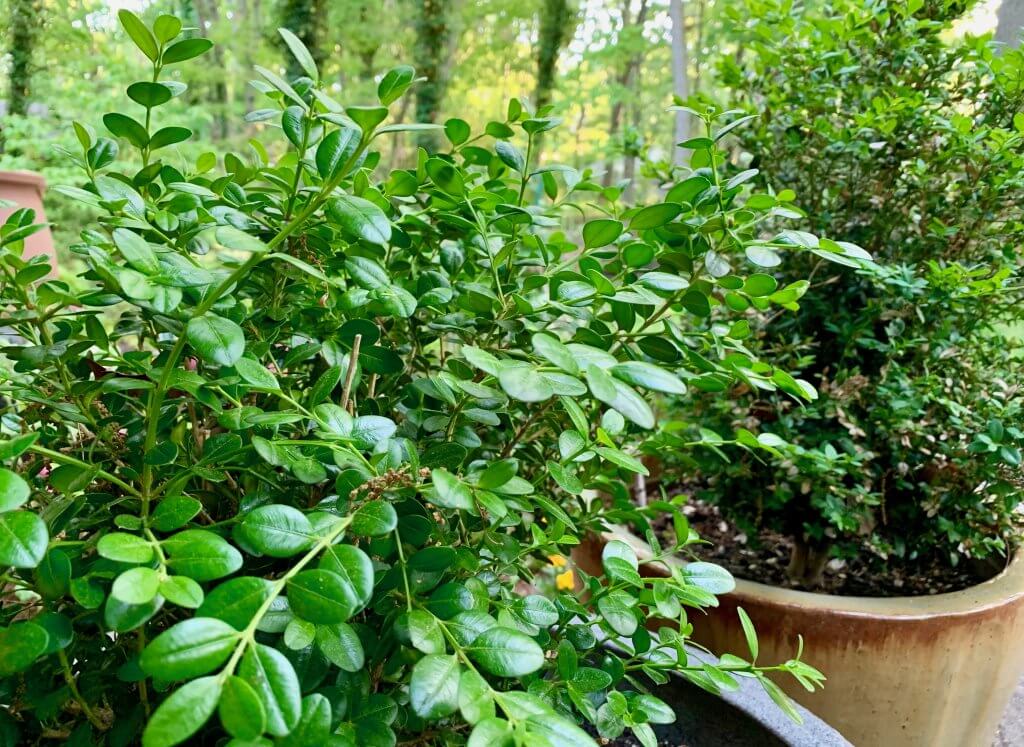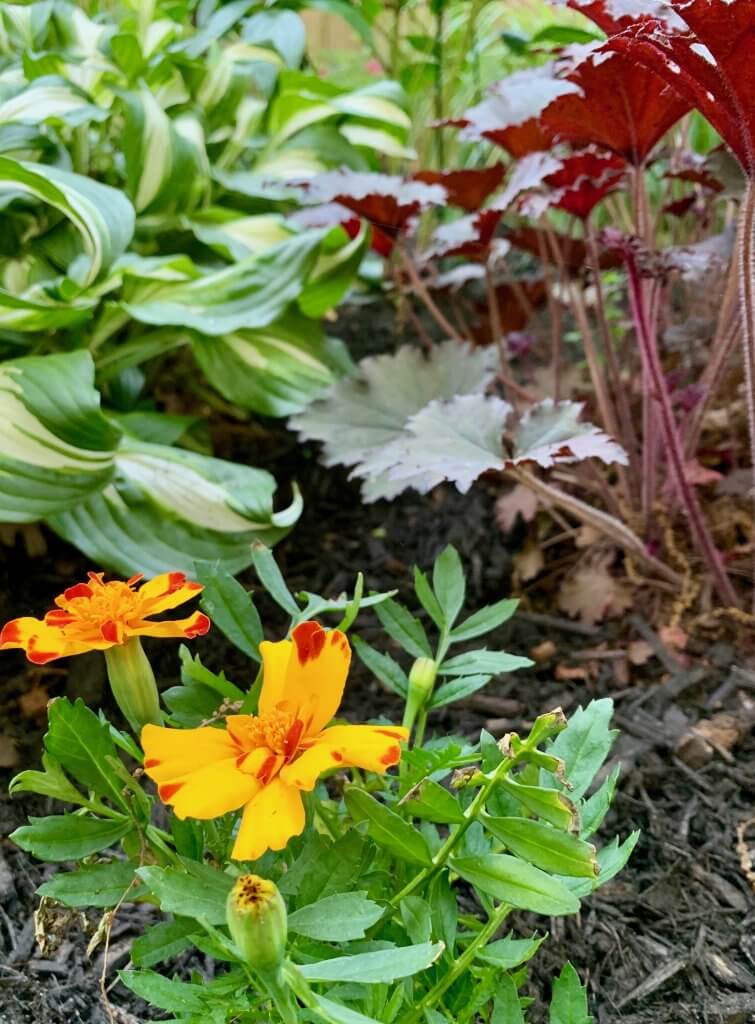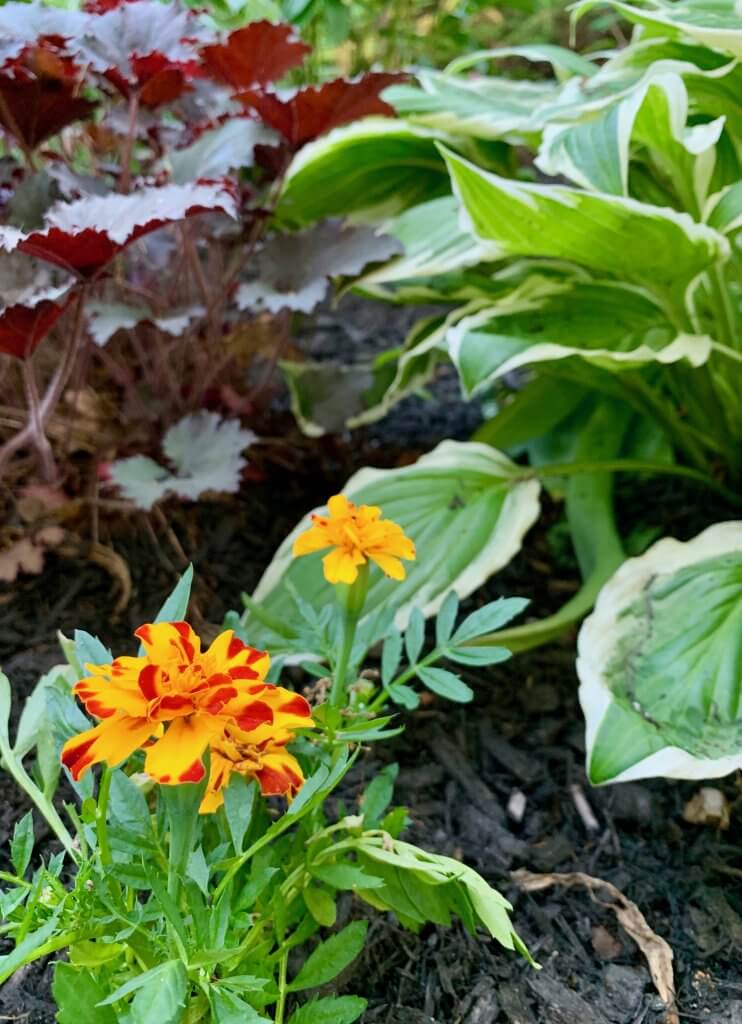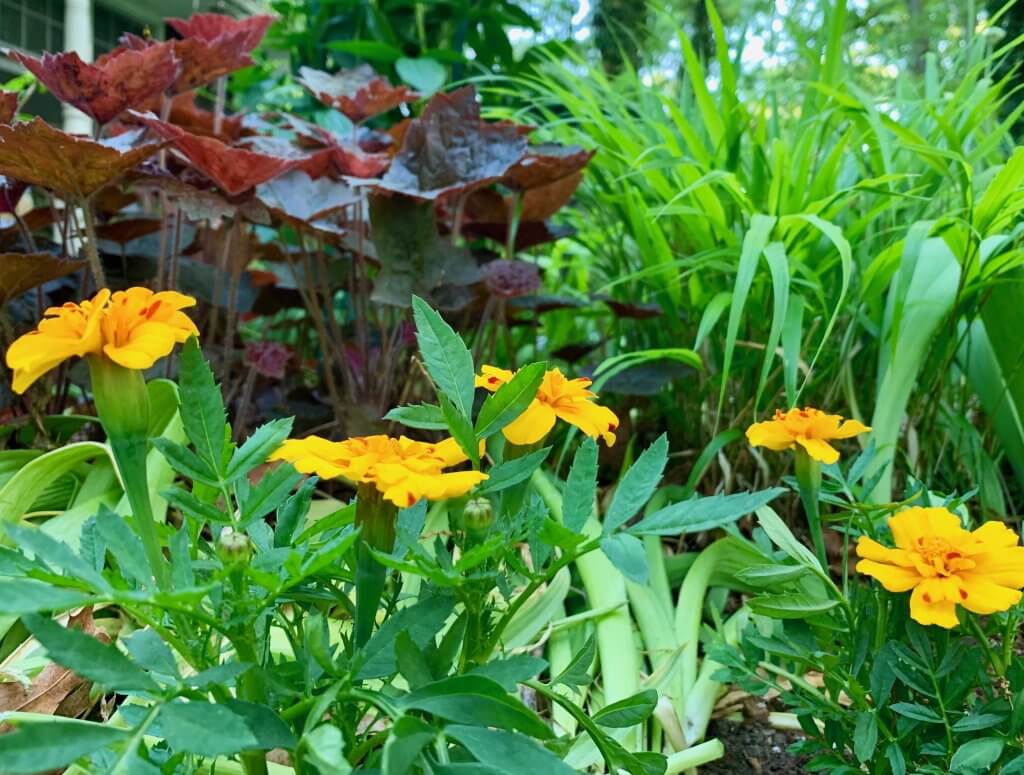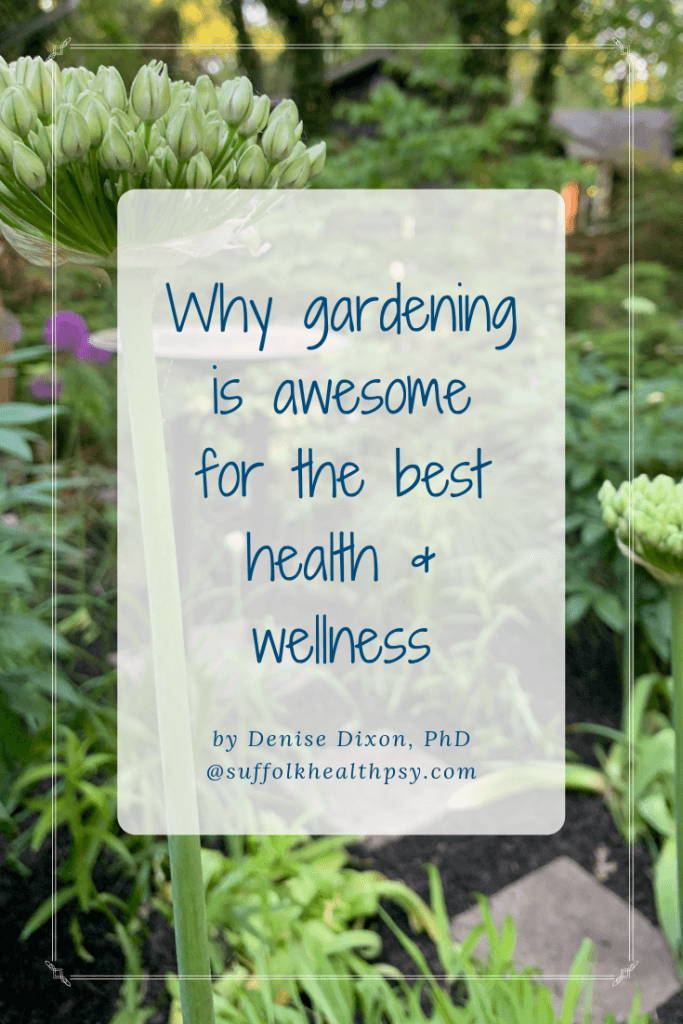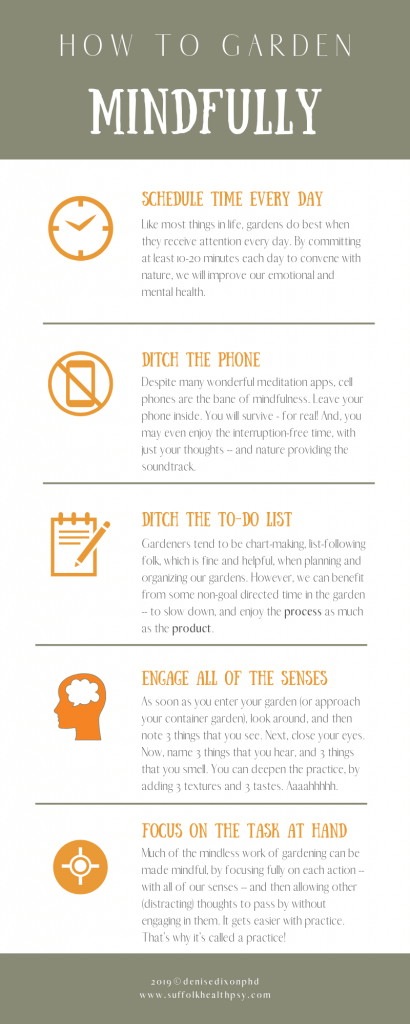In today’s post, we discuss the many reasons why gardening is good for so many different aspects of physical and mental health. Gardening really is awesome for health and wellness!
The act of getting into the garden compels us to slow down, breathe, and take in the beauty (and magic) of nature.
We don’t need to have large outdoor gardens to enjoy the benefits of gardens. Tending to container pots — on patios, balconies and indoor window ledges — will serve the same purpose.
Gardening is one of the best ways to attend to the five pillars of optimal health. We will go more into detail about these essential pillars in a later post. For now, we will touch each of these points, as we remind ourselves how gardening can help us to optimize our health and wellness.
Pillar One: Gardening and optimal physical activity
Gardening is an excellent form of physical activity.
Weeding, digging, raking, hauling bags (or shoveling mounds) of mulch, using a push lawn mower, planting and transplanting shrubs, perennials, and annuals, are all fairly strenuous forms of exercise. It’s like having an outdoor gym — no membership required!
In fact, a meta-analysis revealed that community gardening had a strong effect on lower BMI. No wonder — given the caloric-intense workout that gardening provides.
RELATED: Four fitness apps that you want to download right now
Beyond physical activity, gardening has been shown to decrease the risk of various types of physical and mental illness.
One study showed that gardening decreased the risk of dementia by a whopping 36%! The physical exercise and social aspects (of community gardening, as an example) may be partially responsible for the lowered dementia risk.
Gardening has also been shown to improve mental health, especially depression and anxiety. Interestingly, some studies have shown that horticultural (or nature-assisted) therapy can help to treat mental health problems.
RELATED: An ultimate list of excellent apps that improve mood & health
A metaphor for improving mindset
As I was weeding this weekend, it struck me that weeding is a metaphor for how we may approach dealing with unwanted thoughts.
When weeding, first, we recognize the unwanted plant (as a weed). Then, we remove the weed. However, we need to do more. As we are all well aware, weeds have a tendency to sprout back, with a vengeance! Gardeners know that we need to take additional steps to prevent weeds from returning. Mulching provides a healthy environment for our desired plants to grow. Also, we add desired plants to replace the unwanted weeds. Thus, we fill in the spaces, so that the weeds do not return.
We can do the same thing with our unwanted thoughts… First, increased awareness of unwanted thoughts, followed by replacing and filling the spaces with desired thoughts. As with gardening, the patient practice makes permanent.
How cool, is that?
Pillar two: Improved nutrition
Home and community gardens that produce fruit and vegetables have been shown to have a positive impact on diet and nutrition. This research makes intuitive sense, right?
Especially since consuming whole (unprocessed) fruits and vegetables is one of the best ways that we can optimize our nutrition!
Let’s grow!
RELATED: Is breakfast really the most important meal of the day?
Pillar three: Better sleep
Two essential aspects of good sleep hygiene are daily, moderate to vigorous physical activity, and daytime exposure to sunlight.
RELATED: What is sleep hygiene, and why is it so important?
Of course, gardening out of doors combines moderate to intense physical exercise with exposure to sunlight during the day.
As a result, another physical benefit of outdoor gardening is increased vitamin D absorption. In fact, one study found a lower likelihood of vitamin D deficiency for cyclists and gardeners, but not for brisk walkers.
Some studies have shown a link between vitamin D deficiency and significantly increased risk of sleep disorders, as well as poor sleep quality, short sleep duration, and daytime sleepiness.
Thats because we make our own Vitamin D when our skin is exposed to sunlight. In fact, Vitamin D has been dubbed the “sunshine” vitamin!
Yes, we possess our very own Vitamin D making factory! No supplements required, when we receive adequate amounts of sun exposure. How cool, is that?
Reminder: Always remember to use (eco-friendly) sunscreen, for good skin protection!
Pillar four: Gardening to improve relationships
Gardening has been shown to improve family relationships and community connectedness.
I have many fond memories of tending roses, azaleas, perennials and annuals in the many gardens created by mi abuela. I adored her, and admired her encyclopedic knowledge of horticulture. She worked slowly, methodically, and patiently. Trips to the nursery were special occasions – after which she always rewarded my “bien comportomienta” with a new doll. 😇
As an adult, I always feel the presence of my grandmother (and my father, also incredibly brilliant, artistic and creative), whenever I garden. So comforting.
Even the youngest family members can participate in tending to gardens, by helping with digging holes, and then carefully watering new plants.
Older children can help with weeding, while tweens and teens are old enough to mow lawns and haul bags of mulch.
RELATED: The surprising way that my teenager taught me how to be a better parent
Tending to fruit and vegetable gardens can bring families together, as well, and increases feelings of accomplishment and ownership.
Also, gardening is a wonderful way to connect… with ourselves. Gardening compels us to slow down, pay attention, and listen — not just to birds, but to our inner musings.
Pillar five: Gardening to connect with a higher purpose (being)
Gardening is the ultimate act of co-creation.
When we garden, we are co-creating with the universe, God, Source, our higher selves, Spirit, or however we identify with something or someone that is much greater than ourselves.
When I first started gardening, I remarked to my father, “I love that gardening involves all of the elements of sculpting and painting.” My father, the amazingly gifted artist — taught me how to look for lines, movement, negative space, asymmetrical and symmetrical balance, flow, directions, focal points, form, texture, and of course, color — not just while drawing or painting, but in the garden.
Throughout my life, I’ve always loved watching my father pull out graphing paper, to sketch out a new garden design. Like my grandmother, he worked slowly, deliberately, and methodically. After he finished for the day, I loved the way that he positioned himself at various vantage points, to study his latest garden creation. Now, I do the same, in my own gardens. And so, the connectedness continues to defy time and space.
Gardening as mindful meditation, as we connect with nature
As we garden, we can make sure that we are aware of how our body moves. We can pay attention to (and slow) our breathing, (even sigh) as we move throughout our gardens. We can allow ourselves to take the time to appreciate the many sights, sounds, textures, that our gardens offer.
One thing that I’ve noticed, is that I always find myself pulled into my garden, whenever I notice the absence of the sounds of neighborhood leaf blowers and lawn mowers. During these moments, I relish the silence, punctuated only by the sound of a biplane flying over head, and the cheerful chatter of birds. These are the precious spaces of calm and contentment that our gardens offer.
In addition, gardening offers us a study of contrasts. For example, by enjoying a cool drink of water to refresh us after feeling the warmth of the sun on our faces and arms.
Finally, gardening helps us, by engaging our frontal lobes to plan, organize, and to stay focused. Focused attention is one of the main ways that we learn how to meditate. And, our focused attention (for example, when we click into mindfulness), can result in feelings of peace and contentment.
That’s all, dear blog readers. I hope that you enjoyed this blog post! I leave you with yet another handy infographic — this time, on how to garden mindfully:
Denise Dixon, PhD
Health psychologist
Dr Dixon is a licensed psychologist practicing in New York State. Her contagious enthusiasm for sharing the science of health & behavior has earned her the nickname of “Dr. Smiles.” Dr Dixon also finds joy in motherhood; travel; outdoor sports; singing; piano; and cooking delicious (vegan) meals.
Do you have a suggestion for a blog post? I’d love to hear from you! Simply click here to tell me all about your idea. Thank you!
Did you enjoy reading this blog post? Please share it, by clicking one of these handy share buttons:
Podcast: Play in new window | Download
Subscribe: RSS

